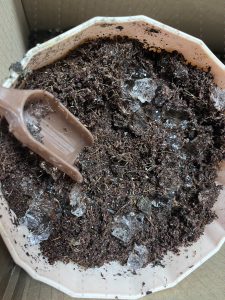Polymer liquid absorbent substance have gained prominence for their ability to absorb and retain large amounts of water. These materials find applications in various fields, including agriculture, hygiene products, and environmental management. This article aims to provide a thorough examination of the safety aspects associated with polymer water-absorbent materials.

Understanding Polymer Water-Absorbent Materials:
Polymer liquid-absorbing substances, commonly known as hydrogels, are substances with a unique ability to absorb and retain water. These materials are often used in agriculture to improve water retention in soil, in personal care products like diapers, and even in medical applications for wound care.
Safety in Personal Care Products:
One of the significant uses of polymer liquid absorbing substances is in personal care products, such as baby diapers and adult incontinence products. Extensive research and testing are conducted to ensure that these materials are safe for prolonged contact with the skin. The majority of hydrogels used in these products are non-toxic and hypoallergenic, meeting strict regulatory standards.
Agricultural Applications:
In agriculture, polymer water-absorbent materials are employed to enhance soil water retention, especially in arid regions. Studies indicate that when used appropriately, these materials can contribute to water conservation and improved crop yields without posing harm to the environment or human health.
Environmental Impact:
Concerns about the environmental impact of polymer water-absorbent materials have been raised, particularly in terms of disposal and degradation. Researchers are actively working on developing biodegradable hydrogels to address these concerns, ensuring that the environmental footprint of these materials is minimized.
Toxicity and Safety Measures:
The potential toxicity of polymer water-absorbent materials is a crucial consideration. Manufacturers adhere to strict quality control measures, and regulatory bodies assess the safety of these materials through comprehensive testing. Consumers can rest assured that reputable products comply with established safety standards.
Proper Usage and Disposal:
Ensuring the safety of polymer water-absorbent materials also involves educating users on proper usage and disposal. Following recommended guidelines for the application of these materials in agriculture and adhering to disposal instructions for personal care products contribute to overall safety.
Conclusion:
In conclusion, polymer water-absorbent materials, when used responsibly and in accordance with guidelines, are generally considered safe. Continuous research and development aim to improve the safety profile of these materials, addressing environmental concerns and enhancing their overall performance. As consumers, staying informed about product specifications and following usage instructions is key to enjoying the benefits of polymer water-absorbent materials while minimizing potential risks.

